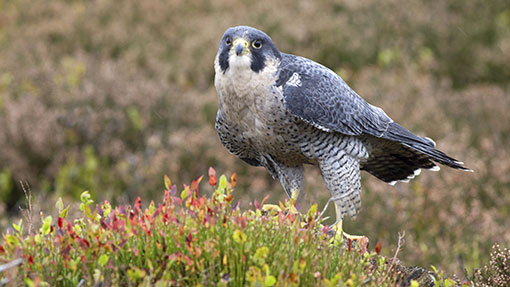Farm gun licence warning over bird of prey deaths

Farmers in Scotland will have their licences to trap or shoot birds withdrawn if evidence of wildlife crime against raptors is discovered on their land.
The Scottish government announced the measures in the wake of high-profile cases of raptor persecution, including the discovery of 22 dead birds of prey in Ross-shire in the Highlands earlier this year. Tests confirmed that 15 of the birds had consumed an illegal poison.
Farmers require a general licence to shoot or trap crows, pigeons, gulls, Canada geese, jackdaws and magpies in order to protect crops or livestock, or for conservation purposes.
See also: Farmers offer £12,000 reward to catch bird killer
The Scottish government said licences would be withdrawn on the basis of evidence provided by Police Scotland. And the measures – which have been developed in consultation with Police Scotland and others – will be backdated so that action will be taken where there is evidence of wrong-doing since January 1 2014. Restrictions will last for three years and this period will increase if more evidence of offences comes to light.
Scotland’s environment minister, Paul Wheelhouse, said he was angry and frustrated that a criminal minority killed and persecuted birds of prey.
“The illegal persecution of raptors is totally unacceptable and barbaric given typically it is associated with great suffering on the part of the birds. It is also, quite rightly, roundly condemned by all responsible land managers and those in the conservation community,” Mr Wheelhouse said.
“It is too often the case that there is clear evidence a crime has been committed, but the perpetrator is able to hide behind a wall of silence among those who really should be co-operating with the police.
“That is why I asked Scottish Natural Heritage to consider how better use can be made of general licences, which, rather than a ‘right’ are a privilege that can and should be withdrawn where there is evidence of illegal activity taking place,” he said.
NFU Scotland’s policy directory, Jonnie Hall said: “Farmers exercise these rights responsibly and as long as they do so, and adhere to existing wildlife legislation, they should not face an erosion or removal of the general licences.”
